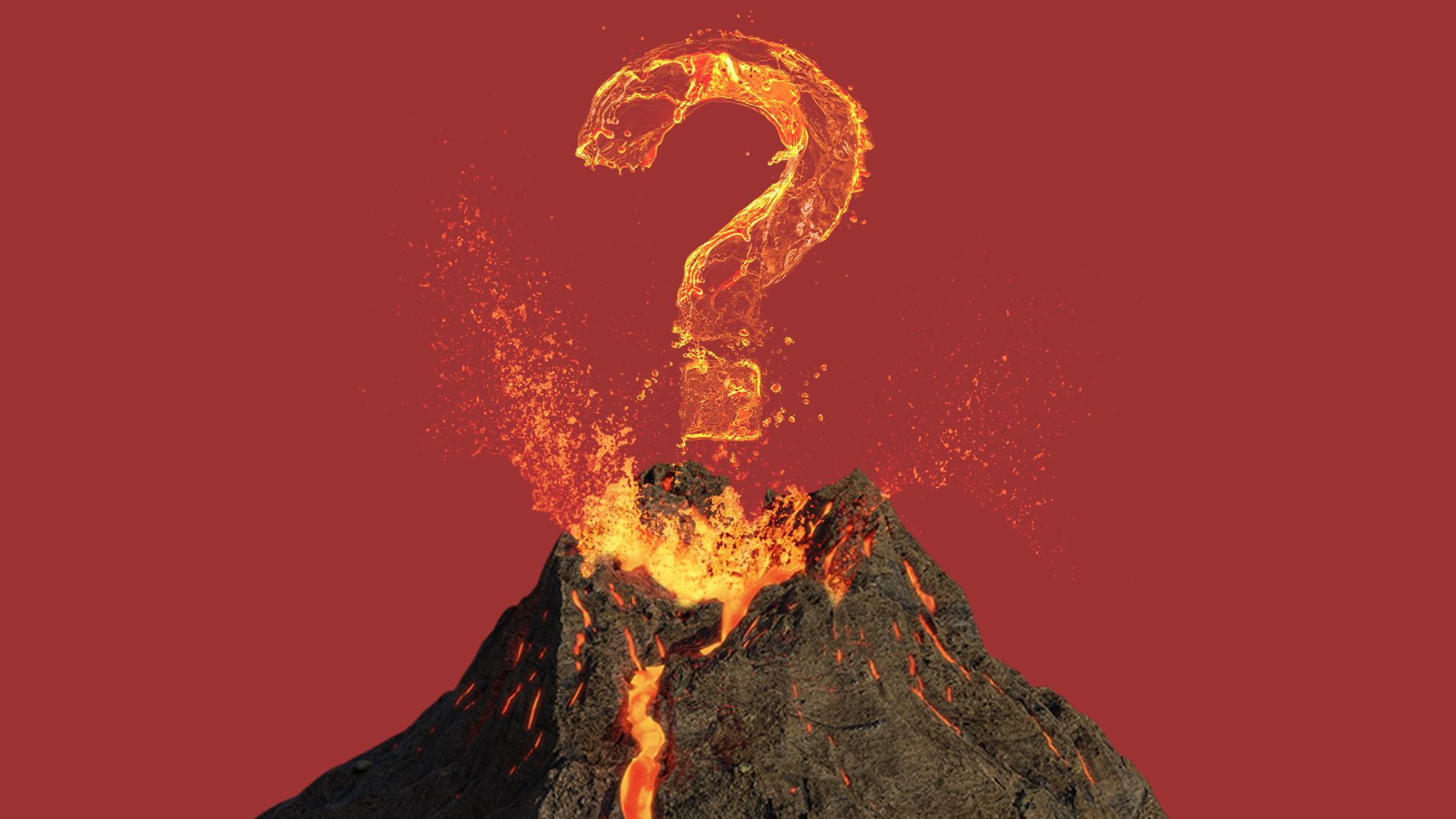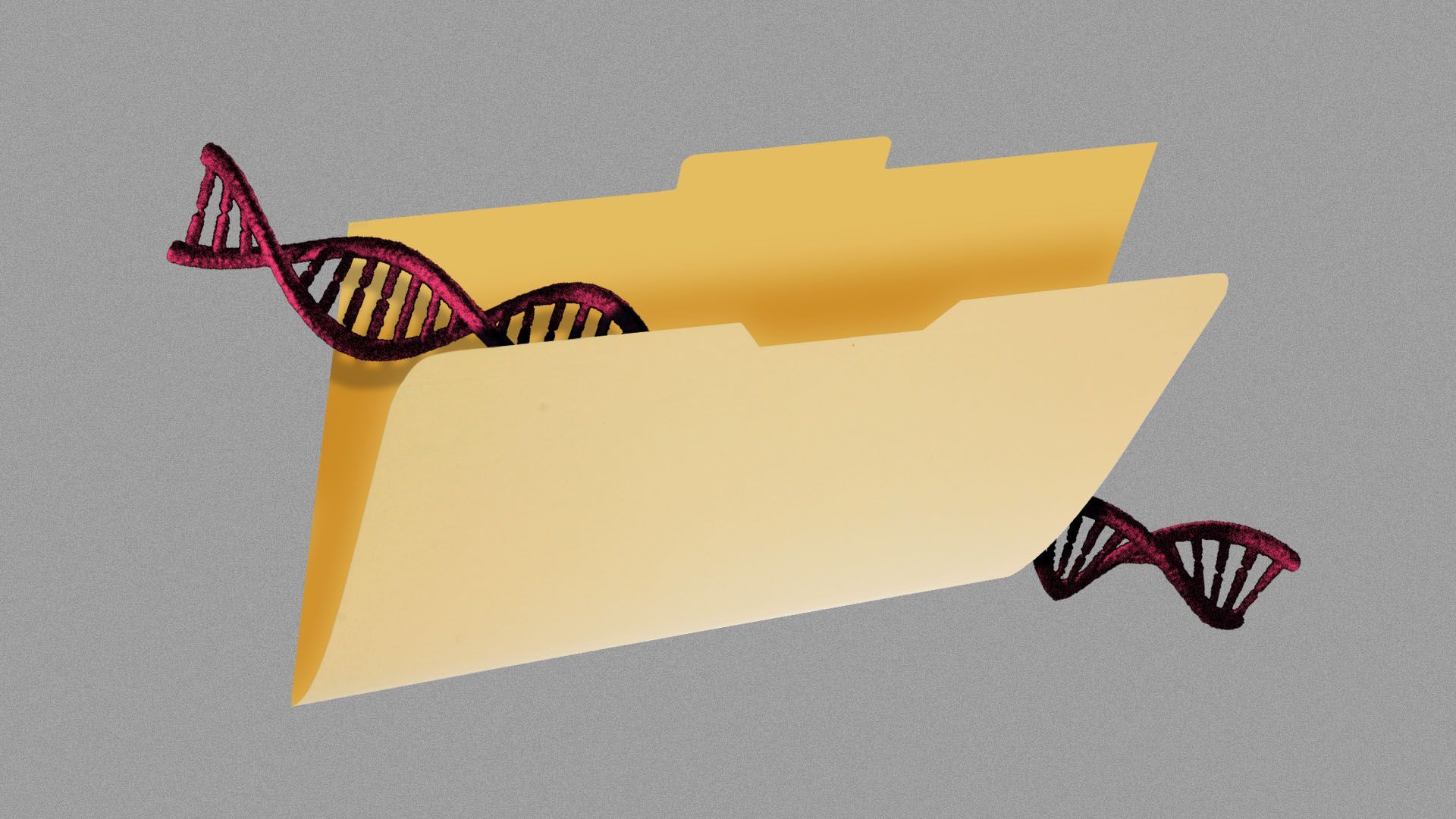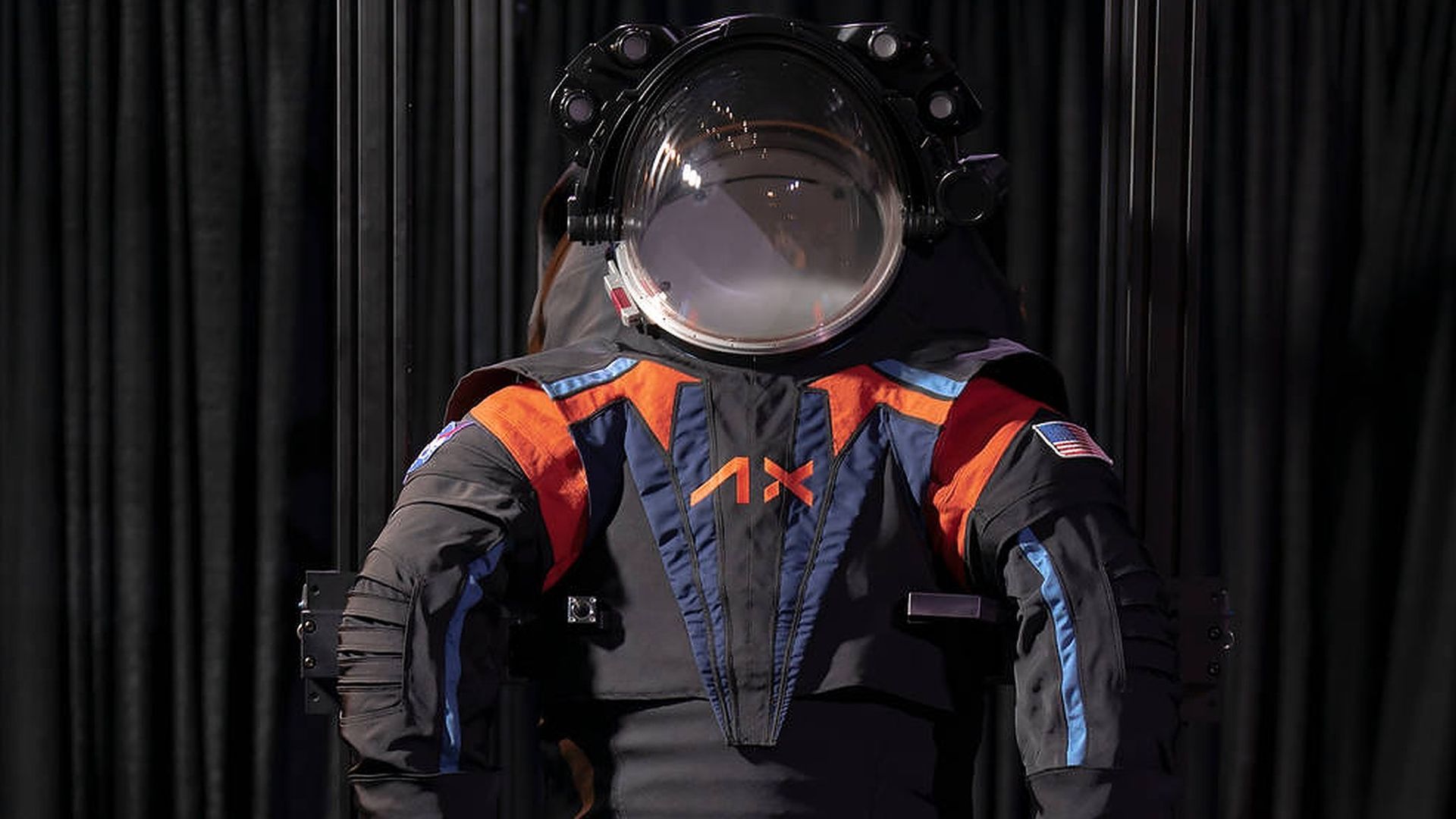| | | | | | | Presented By Babbel | | | | Axios Science | | By Alison Snyder · Mar 16, 2023 | | Thanks for reading Axios Science. This week's newsletter is 1,368 words, about a 5-minute read. - Send your feedback and ideas to me at alison@axios.com.
- Join Axios' Adriel Bettelheim and Tina Reed at 8am Thursday, March 23, in Washington, D.C., for an event exploring how the U.S. can improve its public health preparedness. Register here to attend in person.
- Sign up here to receive this newsletter.
| | | | | | 1 big thing: A volcano on Venus, a new clue about early Earth |  | | | Illustration: Natalie Peeples/Axios | | | | Newfound volcanic activity on Venus hints at the world's past and could give scientists fresh insights into how our Earth — and life on it — evolved, my Axios colleague Miriam Kramer and I write. The big picture: Evidence of geological activity — quakes on Mars, volcanoes on Jupiter's moon Io and relatively recent lava flows on our own Moon — is found throughout the solar system. But the tectonic plates that move on Earth's surface, birthing continents and mountains, are so far the only of their kind known in the solar system. - Sometimes referred to as Earth's evil twin, rocky Venus is about the same size and composition. Some scientists consider Venus an analog for early Earth — before tectonic plates existed.
Driving the news: Now for the first time, there is direct evidence of an active volcano on Venus. - Venus has a similar amount of radioactive elements that produce heat as they decay, leading scientists to believe the rocky planet could also be volcanically active. But they hadn't seen direct evidence.
- In a new study, scientists compared radar images taken by the Magellan spacecraft between 1990 and 1992 of a region of the planet where there are two volcanoes.
- They found a vent on one volcano that doubled in area and changed shape over a period of eight months in 1991, suggesting it had erupted. It's still not clear how often these eruptions occur.
The findings make "an unequivocal case" for recent volcanism on Venus, says Suzanne Smrekar, a geophysicist at the Jet Propulsion Laboratory who leads NASA's planned VERITAS mission to Venus but wasn't an author of the new paper. - She led a recent study that analyzed Magellan data to understand how Venus, without plate tectonics, loses heat from its interior.
- On Earth, heat flowing toward the planet's surface is released, causing the plates to move.
- On Venus, there are no organized tectonic plates. But heat is escaping in places on the surface, similar to what happens where tectonic plates form on Earth's ocean floor, according to the study.
The intrigue: Understanding complex geological activity like plate tectonics could yield clues in the search for habitable planets in the universe. - "Plate tectonics is a critical component of the Earth system that has played a major role in shaping the conditions allowing life to emerge and thrive on our planet," Tristan Salles, a geomorphologist at the University of Sydney told Axios in an email.
But, but, but... Earth is unique in the solar system for other reasons, including its atmosphere, liquid water and the Moon. - "Even if Venus may not be an exact analog for pre-plate tectonic Earth, studying the planet can still provide valuable insights into the geological processes that shaped our planet's early history," Salles said.
Read the entire story. |     | | | | | | 2. New guidelines recommend against racial categories in genetics studies |  | | | Illustration: Sarah Grillo/Axios | | | | Experts recommended this week in a new report against using race to categorize people in most genetics research. Why it matters: Race is frequently used to describe populations in studies of human history, evolution and disease but human genetic variation is influenced by many social and environmental factors. - Race "is a socially constructed designation, a misleading and harmful surrogate for population genetic differences," the report from the National Academies of Science, Engineering and Medicine says.
- "Many elements of racial thinking, including essentialism and biological determinism, have influenced modern thinking around human genetics, to the marginalization of some peoples and the benefit of others," the authors write.
- "[N]o single variable fully represents" the complexity of human genetic diversity, they add.
Details: The report offers scientists best practices for using different concepts of population, including geography, genetic ancestry and genetic similarity, for different genetics studies. - "Whenever possible, researchers should use variables that more precisely capture the information that is needed to answer the question at hand," they advise.
- The authors also urge researchers to be transparent about how they decide on the descriptors they use and to involve the study populations in determining the labels.
- "It is time for us to reshape how genetics studies are conceptualized, conducted and interpreted," they write.
Go deeper: - Science News' Tina Hesman Saey looks at the rare research case for keeping race as a descriptor and what the guidelines mean for efforts to improve the diversity of participants in genetics studies.
- Race and science in America (Axios)
|     | | | | | | 3. NASA's new moon suit |  | | | A prototype of the NASA spacesuit to be worn by astronauts on the Artemis III Moon mission later this decade. Photo: Axiom Space via NASA | | | | NASA and Axiom Space unveiled yesterday the first prototype of a "next generation" spacesuit for humanity's return to the moon in 2025 during an event in Houston, Texas, Axios' Bec Falconer writes. Why it matters: The suits will be key to NASA's plans to send people to the Moon. The space agency has pledged to send the first woman and first person of color to the Moon on the Artemis missions. What they're saying: "Axiom's next generation spacesuits will not only enable the first woman to walk on the Moon, but they will also open opportunities for more people to explore and conduct science on the Moon than ever before," said NASA administrator Bill Nelson in a statement. The intrigue: The prototype suit unveiled at the Johnson Space Center was black with blue and orange detailing, but since a spacesuit worn on the Moon "must be white to reflect heat and protect astronauts from extreme high temperatures, a cover layer is currently being used for display purposes only to conceal the suit's proprietary design," per an Axiom statement. |     | | | | | | A message from Babbel | | The secret to language learning | | |  | | | | Context is key when it comes to learning a new language. That's why Babbel offers courses and tips that provide important cultural knowledge while you learn. Even better: You can learn a new language in just 3 weeks with daily practice using Babbel. Get 55% off a subscription now. | | | | | | 4. Worthy of your time | | What the Silicon Valley Bank collapse means for science startups (Katharine Sanderson — Nature) Saliva: The next frontier in cancer detection (Matías A. Loewy — Knowable) Banking on the seaweed rush (Nicola Jones — Hakai) |     | | | | | | 5. Something wondrous |  | | | Gorilla spinning in Volcanoes National Park, Rwanda. Video: University of Warwick/Kusini Safaris | | | | Great apes can spin themselves until they are dizzy — which scientists who led a new study of the behavior say could help to explain why humans seek their own altered mental states. The big picture: Humans have their own longstanding mind-altering rituals and have experimented with substances for millennia. But when those practices started and what their role is "in the emergence and evolution of the human mind" is debated, the research team wrote. - "Every culture has found a way of evading reality through dedicated and special rituals, practices, or ceremonies," Adriano Lameira, associate professor of psychology at the University of Warwick who co-led the study said in a press release.
- "This human trait of seeking altered states is so universal, historically, and culturally, that it raises the intriguing possibility that this is something that has been potentially inherited from our evolutionary ancestors,"
- The team proposes using dizziness from spinning as a window into the question.
What they did: The researchers analyzed 40 YouTube videos of gorillas, chimpanzees, bonobos and orangutans spinning on ropes and vines as they played by themselves. - On average, the primates spun 5.5 times each time with about 1.5 revolutions per second. That is on par with professional dancers and circus artists, and speeds that make humans "high," the authors reported in the journal Primates.
- The longer they spun, the more likely the apes were to let go of the rope. And when they did, the apes were often noticeably dizzy — some immediately sat or laid down, others moved just a bit before hitting the ground.
Yes, but: It's unclear what motivates the great apes to spin — a question that the authors say is key to understanding whether humans' ancestors sought mind-altering experiences. - "If all great apes seek dizziness, then our ancestors are also highly likely to have done so," Lameira said.
My advice: Don't try this. - When the researchers tried to spin at the same speeds as the great apes, they experienced "severe dizziness" and found it hard to last three rounds like the apes did.
- "We invite the reader to try the observed average rotational speed, length or number of bouts performed by great apes reported here for instant validation," they wrote.
|     | | | | | | A message from Babbel | | Start speaking a new language — your way | | |  | | | | Everyone learns differently when it comes to studying a new language, no matter their experience level. The solution: Babbel helps users begin to speak a new language in just 3 weeks with lessons, podcasts, games and more. Get 55% off a subscription for a limited time. | | | | Big thanks to Miriam for writing with me this week, to editor Laurin-Whitney Gottbrath, visual journalists Natalie Peeples and Shoshana Gordon, and copy editor Carolyn DiPaolo. |  | | Are you a fan of this email format? Your essential communications — to staff, clients and other stakeholders — can have the same style. Axios HQ, a powerful platform, will help you do it. | | | | | | Axios thanks our partners for supporting our newsletters.
Sponsorship has no influence on editorial content. Axios, 3100 Clarendon Blvd, Arlington VA 22201 | | | You received this email because you signed up for newsletters from Axios.
To stop receiving this newsletter, unsubscribe or manage your email preferences. | | | Was this email forwarded to you?
Sign up now to get Axios in your inbox. | | | | Follow Axios on social media:    | | | | | |








No comments:
Post a Comment